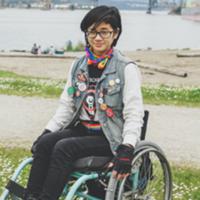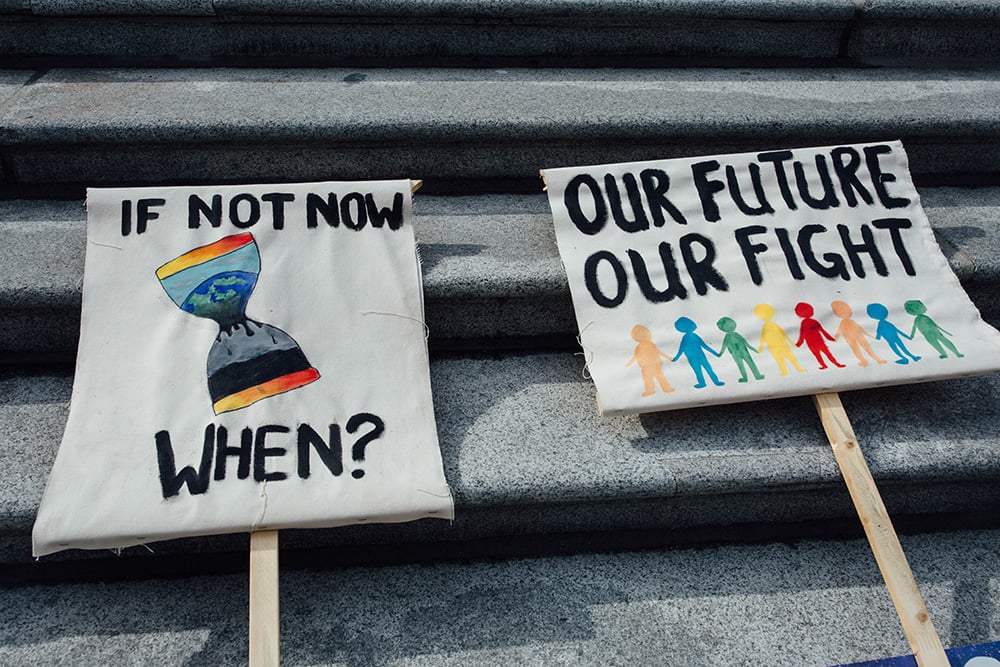The year 2020 has been a lesson in converging crises. We are witnessing and experiencing a global pandemic, an unreckoned racial crisis and the impacts and multiplying effects of climate change. In a year fraught with challenges, Vancouver’s newly-passed Climate Emergency Action Plan is an indication of what is possible for local climate action. We need the ambition and equity of Vancouver’s plan to be matched across the country and around the world.
We are both young climate organizers who rallied behind the plan. Alongside other young people, we demonstrated safely outside of Vancouver city hall, spoke to council, and mobilized hundreds of supporters, because we are running out of time. We must enact bold, comprehensive and most importantly, equitable policy measures to tackle climate change.
Vancouver’s Climate Emergency Action Plan specifically names that people made marginalized by society, such as disabled people and lower income folks, must be prioritized in climate action. The plan also emphasizes the city’s commitment to working with the Tsleil-Waututh, Squamish, and Musqueam Nations on the development and implementation of these measures. As uninvited people of colour on stolen, ancestral lands, we know that it is imperative for us to weave intersectionality and decolonization into all climate action.
The plan addresses over 90 per cent of Vancouver’s emissions through targeting the largest sources: buildings and transportation. Retrofitting buildings reduces gas use, transitions us towards efficient, electric space and water heating, and moves us towards cleaner indoor air. By further investing in walking, cycling and public transit — and implementing well-designed mobility pricing and a parking program — the plan shifts us towards more sustainable transportation options, while still centring equity.
We won’t need to throw out working appliances or get rid of working cars, but we’ll have the support to replace them with electric or other alternatives when they wear out. Science and justice demand that we tackle the climate crisis in bold and equitable ways. We will be closer to doing this when action like Vancouver’s plan is replicated in cities everywhere.
We know it’s past time to implement similar policies in other places, but some obstacles remain. In most Canadian cities, mayors and councils don’t have the authority to implement policies like Vancouver’s, particularly in relation to buildings and transportation. Municipal leaders across the country, including in Vancouver, can’t regulate adjacent ports to safeguard local health and safety and mitigate global impacts. They can’t stop fossil fuel megaprojects from harming their residents, who often also oppose these developments.
Local leaders in Canada need to be able to take the action that youth activists are calling for and collaborate with expanding movements like Safe Cities to protect their communities and the global climate. Our best chance for the future depends on growing and using our local power. As young climate organizers, the need for Vancouver’s plan — and broader, more immediate action — seems obvious, since we viscerally feel the stakes of the climate crisis. Between perpetuating climate disasters and human health consequences versus protecting natural assets, future-proofing infrastructure and improving people’s lives, the choice is simple. Massive mobilizations calling for climate action in 2019, and our organizing since, have been rooted in the need for ambitious climate emergency plans like Vancouver’s.
The plan gives us hope and demonstrates, yet again, that grassroots, youth-powered organizing catalyzes change. Our futures are on the line, but the climate movement in Vancouver and the young people at its forefront are stronger than ever. We will continue to grow our local power and win bold, equitable climate action. ![]()
Read more: Municipal Politics, Environment


















Tyee Commenting Guidelines
Comments that violate guidelines risk being deleted, and violations may result in a temporary or permanent user ban. Maintain the spirit of good conversation to stay in the discussion.
*Please note The Tyee is not a forum for spreading misinformation about COVID-19, denying its existence or minimizing its risk to public health.
Do:
Do not: